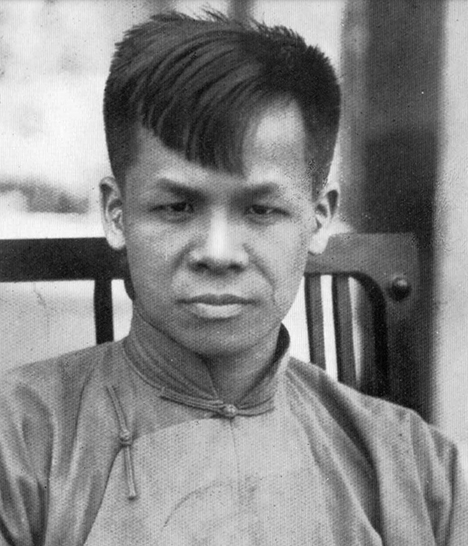
Sung Siong-ceh, or John Sung as he is more popularly known to the world, was, according to Leslie Lyall, John Sung's definitive biographer, "the greatest evangelist China has ever known." Referring to the ministry of Billy Graham at the height of his ministry, John Stott suggests that "[P]erhaps we are experiencing in the West through Dr. Billy Graham what came to the churches of the East recently through Dr. John Sung."

John Sung was born in Hinghwa in the Fukien province on 27 Sept 1901 to a poor Methodist pastor. At the age of eight he, together with the rest of the city, had experienced an outpouring of the Holy Spirit in what came to be called the Hinghwa "Pentecost." Ten years later, despite the abject financial state in which the family lived, he told his father that he wanted to study in the U.S. Miraculously God provided the means and in 1920 he sailed for the USA, enrolled at Wesleyan University, Ohio. Despite his poor English at that point, he asked to complete the four year programme in three, only to be told that it more likely that he would probably take five instead. He graduated three years later the first in his class and became the first Chinese to be elected to the Phi Beta Kappa. So rare was such an accomplishment he became the subject of news in US and Europe. He went on to earn a MSc and then a PhD in chemistry from Ohio State Univerity. Offers and opportunties came from everywhere, but he decided to study theology at Union Theological Seminary, then as now a pinnacle of liberal theology. Soon John Sung had practically lost his faith in the gospel: "My faith was like a leaking, storm-driven ship without captain or compass," he confessed later. Then came a re-awakening when he heard the preaching of a fifteen-year girl at the Calvary Baptist Church, New York. This was followed by a dream in which he saw himself in a coffin, and heard a voice saying, "John Sung is dead—dead to the world!" But then the body began to stir and awaken, when the angels above began to weep, until he called out, "Don't weep, angels! I will remain dead to the world and to self." His "spiritual re-awakening" caused concern at Union, and he was eventually forced to check in at a mental hospital. Union practically renounced him; his name was removed from the student roll. Later that year, 1927, he returned to China. While on the ship home, he threw all the trophies of his academic accomplishments overboard, save his doctorate, which he framed up for his father. Henceforth he would call himself John after the Baptizer who spent his life for the Lord.
Back in China his father was hoping that he would now join the government services and help take care of his brothers. Dismayed when John Sung told him that the Lord had called him to be a preacher, the family quickly accepted it. Thus began a strenuous life of an evangelist, first in China and then, as his fame spread, into South-East Asia. A short while after returning from a mission to Indonesia, Malaya (Malaysia) and Singapore in 1940, John Sung was taken ill. He was admitted to a hospital in Beijing and had to have four operations over the next four years. But his life was spent in the Lord's service; he was never to recover. Early in the morning of 18 Aug 1944, he went home to glory, leaving behind his wife and three surviving daughters.

Further Reading & Resources:
Leslie T. Lyall, John Sung. London: China Inland Mission-Overseas Missionary Fellowship, 1954. Pdf N This work has been re-published by Armour Publishing, Singapore (mail@armourpublishing.com).
Timothy Tow, John Sung My Teacher. Singapore: Christian Life Publishers, 1985. Pdf N
John Sung, The Journal Once Lost, compiled by Levi Sung. Singapore: Genesis Books (Armour Publishing), 2008. John Sung's diaries were confiscated by the Communists during the Cultural Revolution in the 1960s. Miraculously, someone had kept them, and they were returned to his daughter. This work is a compilation of extracts from his once lost diary.

©ALBERITH
260421lch